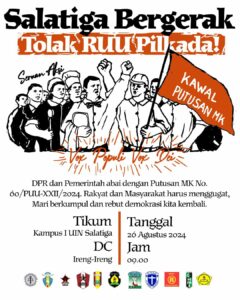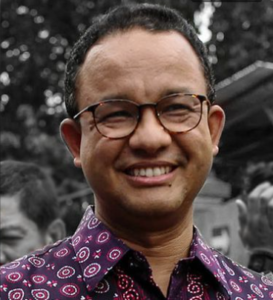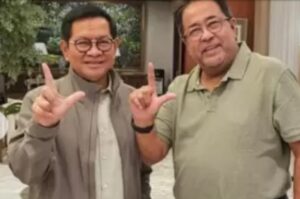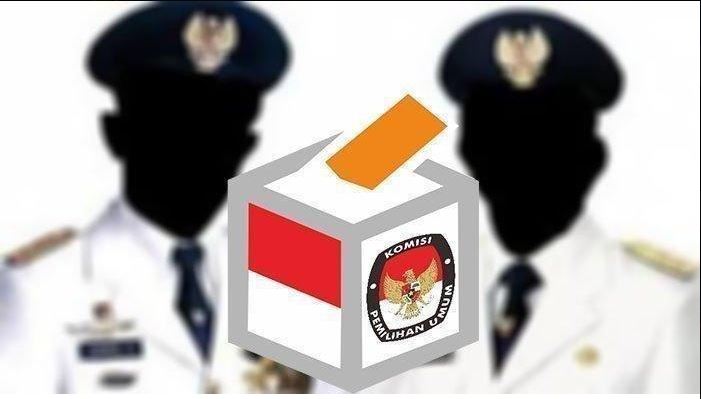
STRATEGIC ASSESSMENT. The Indonesian Solidarity Party (PSI) said its chairman Kaesang Pangarep, who along with wife Erina Gudono has become the subject of public anger on social media following their luxurious trip to the United States amid nationwide protests, would not contest in any gubernatorial elections in November. “Following the Constitutional Court rulings — and regardless of whatever decision the KPU and the House will make to respond to the rulings — I’m certain that Kaesang will not contest any local elections in November,” PSI Secretary-General Raja Juli Antoni said in a statement.

President Jokowi promised that the government would adhere to the Constitutional Court’s (MK) ruling regarding the regulation. He said that he does not intend to issue a government regulation on regional elections. Questioned about the widespread protests, he said the demonstrations were good, a part of the people’s aspirations.
KPU Chair Mochammad Afifuddin pledged to issue a new regulation based on the Constitutional Court’s last two decisions before opening registration, noting the KPU would seek to follow “the prevailing mechanism” in drafting regulations or laws.
The Indonesian General Elections Commission (KPU) on Sunday officially announced the number of elected candidates for the Indonesian House of Representatives (DPR) from the 2024 legislative election contest. Eight political parties were declared to have qualified for seats in the DPR: Indonesian Democratic Party of Struggle/PDI-P (110 seats), Golkar Party (102 seats), Gerindra Party (86 seats), NasDem Party (69 seats), National Awakening Party/PKB (68 seats), Prosperous Justice Party/PKS (53 seats), National Mandate Party/PAN (48 seats), and Democratic Party (44 seats).
The Indonesian Democratic Party of Struggle (PDI-P) is mounting a challenge to the dominance of the Gerindra Party-led Onward Indonesia Coalition (KIM) in key battleground regions as the hours tick down to the start of candidate registration for the regional head elections.

The PDI-P announced its candidate pairs in its stronghold of Central Java and in Banten that experts said would make the regional elections in November competitive again under the court-ordered new, lower nomination threshold. The PDI-P nominated Andika Perkasa for Central Java governor, setting the stage for a battle between a former TNI commander and a three-star police general on the KIM ticket, Ahmad Luthfi, who was the province’s former police chief.
Former Jakarta Governor Anies Baswedan’s hopes for reelection were dashed when the PDI-P decided against nominating him for the upcoming gubernatorial election. Despite Anies’ efforts, including a visit to PDI-P’s headquarters dressed in the party’s signature red, PDI-P Chairwoman Megawati Soekarnoputri opted to nominate the party’s own executives for the race. Indonesian PDI-P executives Pramono Anung and Rano Karno will officially submit their candidacies for the Jakarta gubernatorial election, a party official confirmed.

In response to recent demonstrations opposing the House of Representatives’ (DPR) plan to amend the Regional Elections Law, which led to the detention of a number of protesters, President Jokowi emphasized the importance of voicing aspirations within Indonesia’s democratic system and expressed the hope that detained demonstrators would be released soon. In a virtual statement broadcast by the Presidential Secretariat in Jakarta, Jokowi said that a democratic nation values public opinion.
Indonesian democracy is facing the gravest threat to its survival since authoritarian President Suharto fell in 1998, with recent student-led protests reflecting that citizens are pushing back, analysts said. Democratic state institutions have been weakened in a bid to enable power consolidation, nepotism, dynasticism and enrichment — seemingly so that outgoing President Jokowi can continue to influence politics after he leaves office in October, analysts and activists said.
Monica Kappiantari, a development aid specialist said recent rallies in Indonesia against the planned changes to regional election rules have brought up memories of the student protests that led to Soeharto’s downfall in 1998. While both events represent public discontent, the contexts differ. In 1998, Indonesia was transitioning from authoritarianism to democracy. Today, while the democratic framework exists, there are indications of backsliding, and recent demonstrations show the continued difficulty of maintaining democratic governance.
International financial institutions and development agencies played an important part in Indonesia’s Reform movement in 1998, helping to shape the democratic institutions that are currently under strain. For instance, the IMF’s assistance during the 1997 Asian Financial Crisis provided a significant rescue. However, the tight economic conditions that followed, while stabilizing the economy, caused widespread unrest and contributed to Soeharto’s downfall.
On 22 August 2024, Indonesia witnessed a surge of political activism as thousands of university students and other demonstrators stormed the House of Representatives (DPR) building in Jakarta. This dramatic scene was mirrored by large-scale protests on university campuses and at legislative buildings in major cities including Yogyakarta, Semarang, Makassar, Bandung, Surabaya, and Bali. These demonstrations were among the largest since the 2019 rallies against the revision of the Corruption Eradication Commission (KPK) Law and the Criminal Code.
Two potential candidate pairs registered their candidacy for the Jakarta gubernatorial election with the local branch of the General Elections Commission (KPU), setting the stage for a three-horse race in November.

Registering were Cabinet secretary Pramono Anung and running mate PDI-P politician and actor Rano Karno, as well as Former West Java governor Ridwan Kamil and running mate Suswono. Also, former police general Dharma Pongrekun and academic Kun Wardana were expected to register as an independent candidate pair.
Indonesia’s largest political party nominated a cabinet minister as its candidate for Jakarta governor, effectively ending the chance of the early favorite and vocal government critic Anies Baswedan of running. The nomination follows a week of political drama and protests in the world’s third-largest democracy over efforts by President Jokowi to consolidate power before he leaves office, in part via a proposed revision to election law that would have benefited his youngest son and sidelined Anies.
The sudden resignation of Airlangga Hartarto as Golkar Party chairman on Aug. 12 and the uncontested election of Bahlil Lahadalia as his successor nine days later show how dependent Indonesia’s oldest political party is on the country’s ruler. Golkar changes guard when the government wills it.

President Joko “Jokowi” Widodo is widely believed to have orchestrated the early exit of the seasoned Airlangga, which paved the way for up-and-comer Bahlil to lead the party. Both men have shown loyalty Jokowi, but the outgoing President wants to ensure Golkar is under the right person before he ends his second and final term on Oct. 20. Bahlil, who served as investment minister before his recent appointment as energy minister, has worked hard to convince president-elect Prabowo Subianto that Golkar will be a reliable coalition partner under his leadership.






